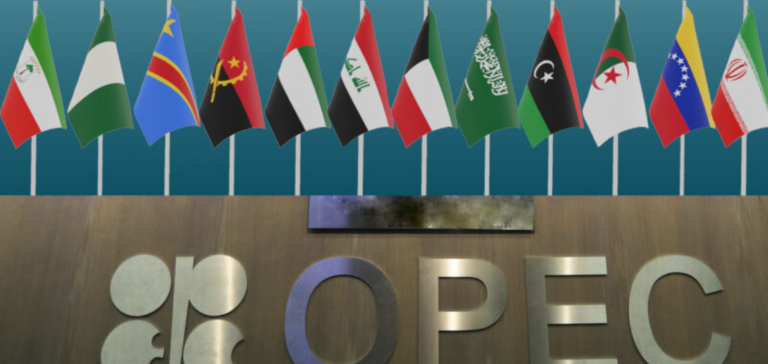The Opec+ black gold producing countries left their production quotas unchanged in a very uncertain climate, on the eve of the entry into force of new sanctions targeting Russia.
Representatives of the thirteen members of the Organization of the Petroleum Exporting Countries (Opec) led by Riyadh, and their ten allies led by Moscow, have agreed to stay the course decided in October of a reduction of two million barrels per day until the end of 2023, two participants in the meeting told AFP.
A statement confirmed the continuation of the current strategy, taken to support prices.
“This is not a big surprise,” commented analyst Hans van Cleef of ABN Amro, recalling that the alliance had already “warned of a slowdown in economic growth and therefore in demand for crude oil.”
In recent weeks, prices for both global benchmarks have lost ground and are in the $80-$85 range, a far cry from their peaks of over $130 reached in March after the invasion of Ukraine began.
This, “in retrospect, validates our course of action,” argued OPEC, which had raised the ire of the White House by slashing its quotas.
The next meeting was set for June 4, 2023, but the group said it was prepared to meet “at any time” between now and then to take “immediate additional action” if needed.
Russia in the spotlight
The decision was made after a quick meeting by video conference, the Opep+ returning to its habits taken during the Covid-19 pandemic after an exceptional meeting in early October in Vienna, headquarters of the cartel.
Speculations had run about a more drastic cut, but the group preferred to temporize in front of “the uncertainty as for the impact on the Russian crude oil production” of the new package of sanctions, underlined Giovanni Staunovo, analyst of UBS questioned by the AFP.
Russia is up in arms against the price cap on its oil that the European Union, the G7 and Australia plan to put in place on Monday “or very soon after” to deprive Russia of the means to finance its war in Ukraine.
The price of a barrel of crude oil from the Urals is currently hovering around $65, just above the $60 ceiling.
But the Kremlin has warned that it will no longer deliver oil to countries that adopt this mechanism, a position reaffirmed on Sunday by the Russian Deputy Prime Minister in charge of Energy, Alexander Novak.
Quoted by Russian news agencies, he even said that Russia was working “on mechanisms to prohibit the use of the cap tool, regardless of the level set.”
“Such interference can only cause further destabilization of the market and a shortage of energy resources,” he blasted.
Moscow will also be hit from Monday by an EU embargo on its seaborne oil.
And China too
Another element that played into the status quo, according to the UBS expert, was “some easing” of the strict sanitary restrictions in China, which could ease market concerns.
Demand from this country, which is the world’s largest importer of crude oil, is scrutinized by investors, and the slightest sign of a slowdown in the economy or a resurgence in the epidemic has a direct impact on prices.
In this gloomy context and in the face of fears of a global recession, North Sea Brent and its American equivalent, WTI, have fallen by around 8% since the organization’s last meeting in early October.
If Opec+ has opted for caution, the alliance could in the coming months “adopt a more aggressive stance”, in a warning to the West that bristles the 23 countries by regulating prices, predicts Edoardo Campanella, analyst at UniCredit.
For Hans van Cleef, it now remains to be seen how the markets will react to the resumption of trading on Monday.
In any case, the maintenance of the strategy of the Opep+ combined with the sanctions against Moscow “are likely to raise prices,” he believes.





















